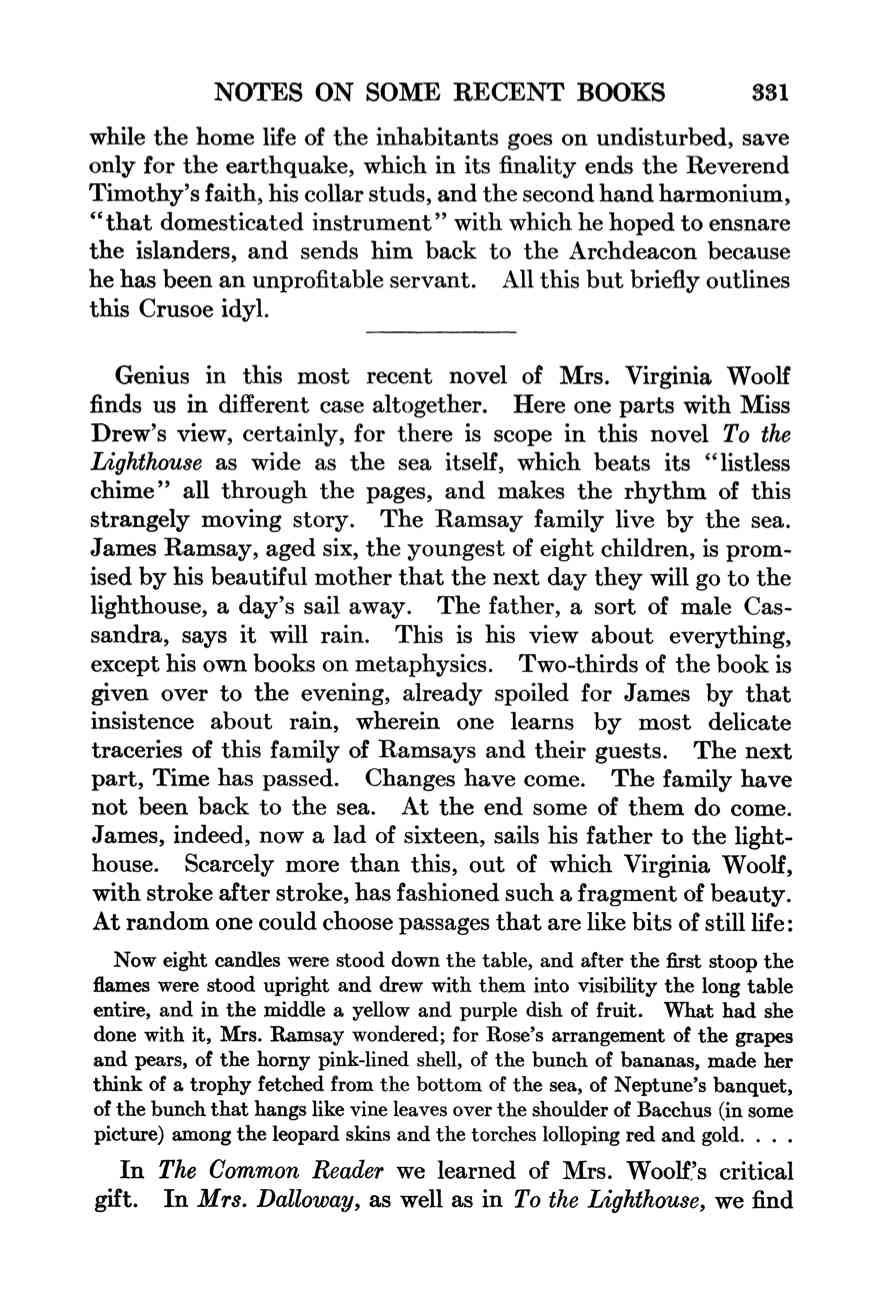
[next page]
while the home life of the inhabitants goes on undisturbed, save
only for the earthquake, which in its finality ends the Reverend
Timothy’s faith, his collar studs, and the second hand harmonium,
“that domesticated instrument” with which he hoped to ensnare
the islanders, and sends him back to the Archdeacon because
he has been an unprofitable servant. All this but briefly outlines
this Crusoe idyl.
___________
Genius in this most recent novel of Mrs. Virginia Woolf
finds us in different case altogether. Here one parts with Miss
Drew’s view, certainly, for there is scope in this novel To the
Lighthouse as wide as the sea itself, which beats its “listless
chime” all though the pages, and makes the rhythm of this
strangely moving story. The Ramsay family live by the sea.
James Ramsay, aged six, the youngest of eight children, is promised
by his beautiful mother that the next day they will go to the
lighthouse, a day’s sail away. The father, a sort of male Cassandra,
says it will rain. This is his view about everything,
except his own books on metaphysics. Two-thirds of the book is
given over to the evening, already spoiled for James by that
insistence about rain, wherein one learns by most delicate
traceries of this family of Ramsays and their guests. The next
part, Time has passed. Changes have come. The family have
not been back to the sea. At the end some of them do come.
James, indeed, now a lad of sixteen, sails his father to the lighthouse.
Scarcely more than this, out of which Virginia Woolf,
with stroke after stroke, has fashioned such a fragment of beauty.
At random one could choose passages that are like bits of still life:
Now eight candles were stood down the table, and after the first stoop the
flames were stood upright and drew with them into visibility the long table
entire, and in the middle a yellow and purple dish of fruit. What had she
done with it, Mrs. Ramsay wondered; for Rose’s arrangement of the grapes
and pears, of the horny pink-lined shell, of the bunch of bananas, made her
think of a trophy fetched from the bottom of the sea, of Neptune’s banquet,
of the bunch that hangs like vine leaves over the shoulder of Bacchus (in some
picture) among the leopard skins and the torches lolloping red and gold. . . .
In The Common Reader we learned of Mrs. Woolf’s critical
gift. In Mrs. Dalloway, as well as in To the Lighthouse, we find






